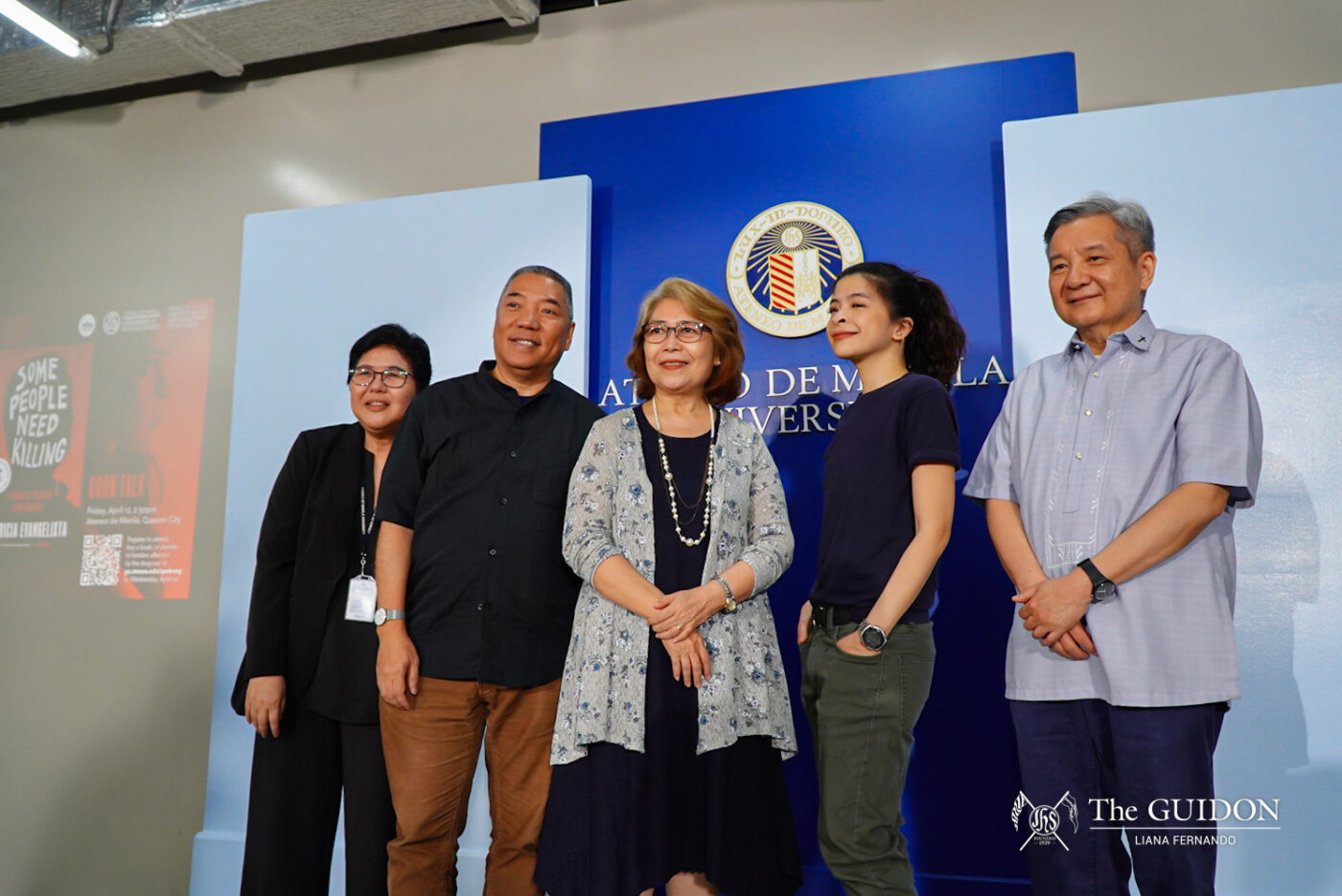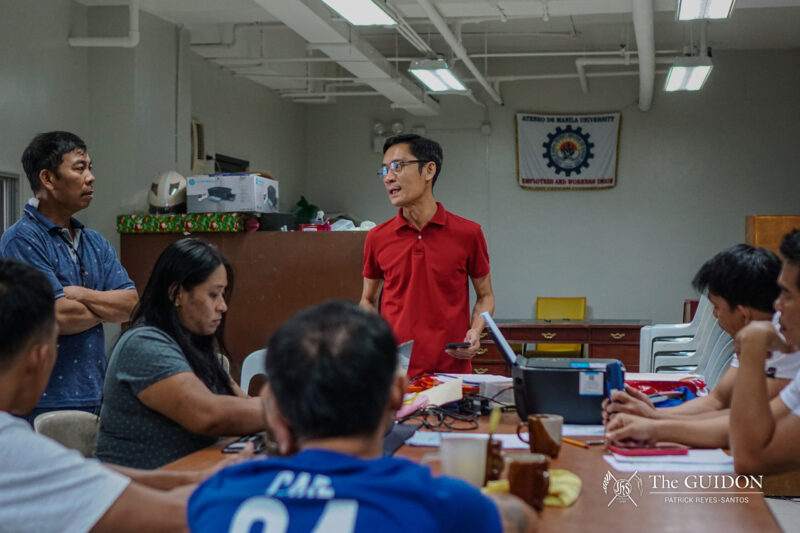TRAUMA JOURNALIST and author Patricia Evangelista visited the Ateneo de Manila University to recount the harrowing narratives of the extrajudicial killing victims of the drug war as portrayed in her award-winning novel Some People Need Killing: A Memoir of Murder in My Country.
Marking the second stop of Evangelista’s book tour, the discussion took place at The Loft, Areté, on April 12 and was organized by the Department of Political Science, University Gender and Development Office, Rizal Library, and Rizal Library Ambassadors. Notably, Evangelista has partnered with universities and organizations nationwide to foster discussion regarding the human rights injustices of former President Duterte’s drug war.
Through this initiative, Evangelista strives to honor and share the accounts and stories of the victims of the Philippines’ drug war. Believing that the stories must be reiterated, Evangelista also revealed her initiative, “Ituloy Ang Kuwento,” which aims to supply public libraries, schools, human rights groups, and non-profit organizations with free copies of her book. This initiative would be made possible through discounts given to customers that would purchase two books—one for their copy and one for donation.
On the frontlines
In her talk, Evangelista recalled the reason why she authored her novel in the first place, elaborating on her commitment to honor the stories of victims through her writing. Recounting past events, she explained how Duterte brandished a compelling narrative of violence as a means of deliverance, especially against drug use, which he touted as the nation’s primary problem.
“Here was a man who meant what he said and said what he meant. […] Rodrigo Duterte became every man so that every man could become Rodrigo Duterte,” she said, echoing a passage from her book.
Evangelista also centered on the experiences of those she encountered in the field, detailing how a culture of violence and impunity became normalized, where blatant announcements of murder were met with “the sound of applause.”
Investigating the aftermath of these scenes, she learned that many citizens felt a sense of security despite these killings. They had reasoned that reducing the number of drug addicts made their environment safer.
Although Evangelista had often witnessed tragedies through her work, she had to practice more sensitivity and care when her coverage for the drug war began. With the risk of being emotionally carried away in the scene, her methodology kept her grounded and vigilant. “What I learned during the drug war was to stand still and to listen for the screaming, because that is where you know the families are,” she said.
As a journalist remembering every minute detail, Evangelista recognized that she had to carry the stories of these people for the rest of her life. Thus, before starting her book tour, she visited the victims whose stories were featured in the novel and provided them copies.
Beyond the numbers
During her conversation with esteemed Filipino historian and History Department Professor Ambeth Ocampo, PhD, Evangelista shared how she spent six years engaging the human experiences behind the published statistics. Working with RESBAK, a dedicated group of media practitioners who advocated against such grave violations of human rights, she worked often on the ground, talking to the victims and striving to give their stories justice on paper.
Relating these statistics to the field, she described her encounters with the victims as akin to watching death in slow motion. She found herself reconstructing the last moments of their lives in text, ensuring that every detail was precise in her recounting. However, such was not necessarily the case in real life. “It takes longer to type a sentence than it does to kill a man,” she expressed.
When asked about “seeing a light at the end of the tunnel,” Evangelista reframed the concept of hope to her contexts as a journalist—to deliver the story. “Hope is a dangerous thing when you do what I do. […] I make no promises when I interview—you can’t promise justice, hope, money, or a better world,” she shared.
In line with telling a story behind each number, she extended her gratitude towards the Ateneo for donating 20% of proceeds from its pre-order sale to the families of Duterte’s drug war victims. She also promoted Silingan Coffee, which opened their stall this semester on the second floor of the Gonzaga Cafeteria. The coffee shop is dedicated to supporting the drug war victims and retelling their stories.
The next stop of her book tour will take place at the Ortigas Foundation Library in Greenhills, San Juan City, on April 13.







